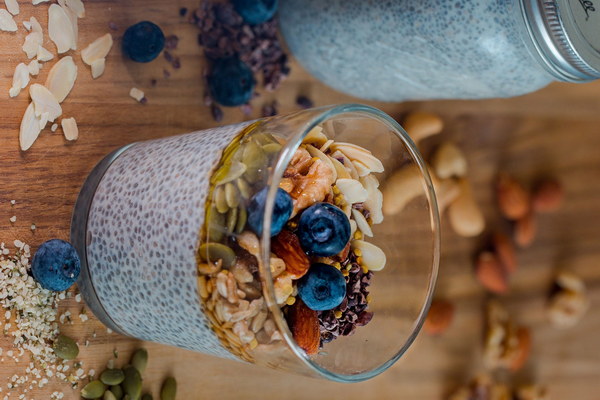Revitalize Your Lungs A FastTrack Guide to Lung Health Improvement
Introduction:
In the fast-paced world we live in, maintaining good health can sometimes seem like an uphill battle. Among the many vital organs in our body, the lungs play a crucial role in breathing and overall well-being. Unfortunately, due to pollution, poor diet, and sedentary lifestyles, lung health has become a significant concern for many people. The good news is that it's never too late to start taking steps to improve your lung health. This article will provide you with a fast-track guide to help you revitalize your lungs and breathe easier.
1. Quit Smoking:
The most significant step you can take to improve your lung health is to quit smoking. Smoking is a leading cause of lung disease, including chronic obstructive pulmonary disease (COPD) and lung cancer. By quitting, you'll reduce your risk of developing these diseases and improve your lung function over time.
2. Reduce Exposure to Air Pollution:
Air pollution is another significant threat to lung health. To minimize your exposure, avoid high-pollution areas, wear a mask when necessary, and maintain a clean and smoke-free home environment.
3. Practice Deep Breathing Exercises:
Deep breathing exercises can help improve lung capacity and oxygenation. Try the following exercises daily:

a) Pursed-lip breathing: Inhale deeply through your nose, then exhale slowly through pursed lips, as if you're whistling. Repeat for several minutes.
b) Diaphragmatic breathing: Lie on your back and place one hand on your chest and the other on your belly. Inhale deeply, allowing your abdomen to rise, then exhale slowly as your abdomen falls.
4. Stay Hydrated:
Drinking plenty of water helps keep your mucus thin, making it easier for your lungs to expel irritants and pollutants. Aim to drink at least eight glasses of water per day.
5. Exercise Regularly:
Physical activity strengthens your lungs and improves overall cardiovascular health. Engage in moderate exercise, such as walking, cycling, or swimming, for at least 30 minutes a day, most days of the week.
6. Eat a Balanced Diet:
A healthy diet can help support lung function and reduce the risk of respiratory diseases. Include plenty of fruits, vegetables, whole grains, lean proteins, and healthy fats in your diet. Some foods specifically beneficial for lung health include:
a) Almonds: Rich in antioxidants and vitamin E, almonds can help reduce inflammation in the lungs.
b) Spinach: Packed with vitamins C, A, and E, spinach can help protect the lungs from free radicals.
c) Garlic: Garlic has anti-inflammatory properties that may help reduce the risk of respiratory infections.
d) Turmeric: This spice contains curcumin, a compound that may help reduce inflammation in the lungs.
7. Manage Stress:
Stress can exacerbate respiratory symptoms, so it's essential to find ways to manage stress. Practice relaxation techniques such as meditation, yoga, or deep breathing exercises to keep your stress levels in check.
8. Get Regular Check-ups:
Regular check-ups with your healthcare provider can help detect any potential lung problems early and provide appropriate treatment. Don't hesitate to consult a specialist if you experience persistent coughing, shortness of breath, or other respiratory symptoms.
Conclusion:
Improving your lung health is a journey that requires dedication and commitment. By following this fast-track guide, you can take control of your lung health and breathe easier. Remember, even small changes can have a significant impact on your overall well-being. Start today, and take the first step towards a healthier, happier life!









